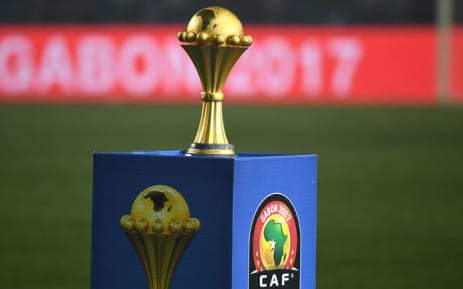AFRICAN CUP OF NATIONS: History and Winners From 1957 to 2021

Did you know that only three teams participated in the maiden edition of the African Cup of Nations in 1957 and that Ghana was the first country, followed by Cameroon (as of 2021) to lift and retain the trophy after a three times win?
Africa Cup of Nations, also called African Cup of Nations and African Nations Cup, is the most prestigious football (soccer) competition in the African continent, contested by national teams and organized by the Confederation of African Football (Confédération Africaine de Football, CAF).
The competition’s format has changed over time, with the number of teams increasing from 3 in 1957 to, after several expansions, 24 in 2019, with growing participation leading to the introduction of qualifying rounds in 1968, the same year that CAF decided to hold the tournament biennially.
The origin of the African Nations Cup dates from June 1956, when the creation of CAF was proposed during the third FIFA congress in Lisbon. There were immediate plans for a continental tournament to be held and, in February 1957, the first African Cup of Nations was held in Khartoum, Sudan.
There was no qualification for this tournament, the field being made up of the four founding nations of CAF (Egypt, Sudan, Ethiopia, and South Africa). South Africa’s insistence on selecting only white players for their squad due to its apartheid policy led to its disqualification, and as a consequence Ethiopia were handed a bye straight to the final. Hence, only two matches were played, with Egypt being crowned as the first continental champion after defeating hosts Sudan in the semi-final and Ethiopia in the final to win the Abdel Aziz Abdallah Salem Trophy, named after its donor, an Egyptian who was the first CAF president.
That trophy was permanently awarded to Ghana in 1978 when it became the first country to win the tournament three times. The next trophy, known as the African Unity Cup, was awarded permanently to Cameroon in 2000 when that team claimed its third championship since 1978. In 2002 a new trophy called the Cup of Nations was introduced.
The competition has served as a showcase for the talents of African players. In the 1950s and ’60s the tournament’s attacking, entertaining style of play seized the imagination of African fans and attracted European talent scouts, agents, and journalists.
Under the leadership of Ethiopian Ydnekachew Tessema, CAF president from 1972 until his death in 1987, the cup earned greater international prestige. Professionalism was allowed in 1980 and corporate sponsorships accepted in 1984.
Among the cup’s greatest performers are Samuel Eto’o of Cameroon, who holds the record for most career goals scored in the Cup of Nations (18), and Ivorian striker Laurent Pokou, who tallied five goals in a 6–1 victory over Ethiopia in 1970.
Beyond the boundaries of the playing fields, the Cup of Nations has been a conduit for the articulation of political values and ideas. Having inherited colonial institutions devoid of indigenous symbols of national identity, many independent African governments invested considerable economic and political capital into national football teams in order to elicit pride and build unity among their diverse populations.
For example, with the enthusiastic support of Ghana’s first president, Kwame Nkrumah, Ghana won the cup in 1963 and 1965. In winning the 1996 tournament at home, South Africa’s racially mixed team seemed to symbolize football’s power to bridge the gaping social and economic inequalities left by apartheid. In contrast, the Algerian government was unable to capitalize on Algeria’s victory in the 1990 Cup of Nations, as fans celebrated the team’s triumph in Algiers by chanting their support for the opposition Islamic Salvation Front. Political tensions violently disrupted the Cup of Nations in 2010: the Togo team bus was attacked by separatist gunmen as it traveled into the Angolan exclave of Cabinda on its way to the tournament; two team officials and the bus driver were killed in the attack, and the Togolese team withdrew from the 2010 Cup of Nations, which was held with 15-team field.
Below is a list of Africa Cup of Nations winners from 1957 to 2019, listed in the order of year of tournament, winner and runner-up.
1957 Egypt | Ethiopia
1959 Egypt | Sudan
1962 Ethiopia | Egypt
1963 Ghana | Sudan
1965 Ghana | Tunisia
1968 Congo | Ghana
1970 Sudan |Ghana
1972 Congo | Mali
1974 Zaire | Zambia
1976 Morocco | Guinea
1978 Ghana | Uganda
1980 Nigeria | Algeria
1982 Ghana | Libya
1984 Cameroon | Nigeria
1986 Egypt | Cameroon
1988 Cameroon | Nigeria
1990 Algeria | Nigeria
1992 Côte d'Ivoire | Ghana
1994 Nigeria | Zambia
1996 South Africa | Tunisia
1998 Egypt | South Africa
2000 Cameroon | Nigeria
2002 Cameroon | Senegal
2004 Tunisia | Morocco
2006 Egypt | Côte d'Ivoire
2008 Egypt | Cameroon
2010 Egypt | Ghana
2012 Zambia | Côte d'Ivoire
2013* Nigeria | Burkina Faso
2015 Côte d'Ivoire | Ghana
2017 Cameroon | Egypt
2019 Algeria | Senegal
2021 Senegal | Egypt
NOTE: *Finals held in even-numbered years 1968–2012; held in odd-numbered years from 2013.
Sources: Britannica | Eagle
#penglobalfactfile #AFCON


_1755775186.jpg)
